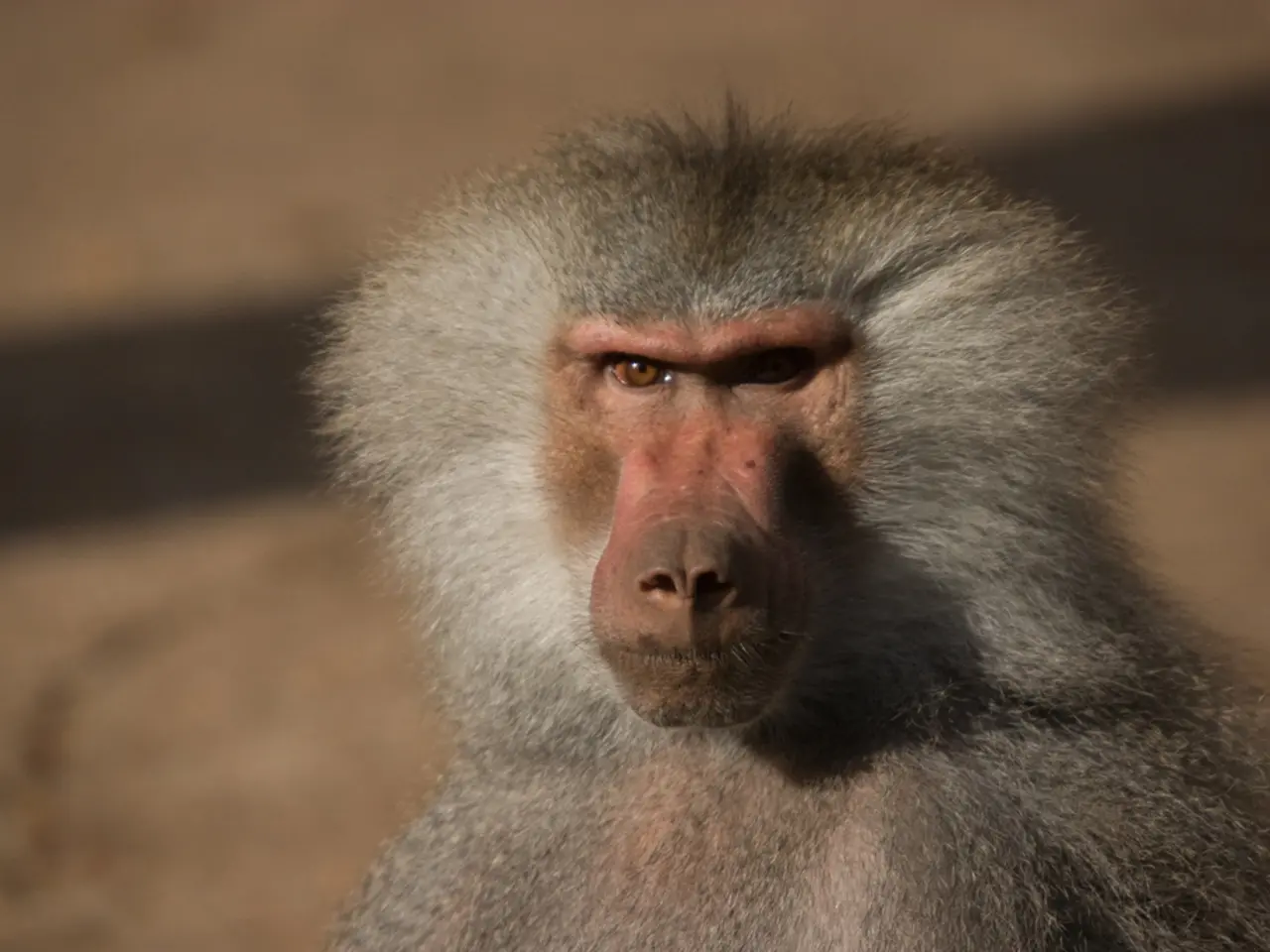Healthy baboons eliminated by zoo amidst heavy critique
In a controversial move, the Nuremberg Zoo has euthanized twelve baboons due to a lack of space and issues with genetic diversity. The decision has sparked outrage among animal welfare organizations, who argue that the practice is ethically problematic and indicative of deeper issues in zoo management.
The recent outcry among the baboons was due to their status as primates, close relatives of humans. Director Dag Encke of the Nuremberg Zoo explained that the increased conflicts in the enclosure led to animals injuring each other. The zoo saw no other option but to euthanize some of the animals.
Zoos, such as Nuremberg Zoo, sometimes resort to euthanizing surplus animals when their number exceeds the capacity for care or when genetic diversity issues arise. This practice is justified by zoos as necessary population management to maintain species health and resource balance. However, animal welfare organizations strongly criticize this practice. Critics argue that excessive breeding to attract visitors leads to overpopulation, and euthanasia of surplus animals amounts to killing sentient beings simply because they are no longer "useful" for display or profit.
The baboon enclosure has been overcrowded for a long time, housing more than 40 animals designed for 25 adult baboons plus offspring. In response to the criticism, the zoo has stated that it attempted to rehome the surplus animals to other facilities, but it was not possible to do so.
The case of the Nuremberg Zoo's baboons is not an isolated incident. In 2014, the euthanasia of giraffe Marius in the Copenhagen Zoo and a zebra in Leipzig in 2023 made headlines, further fuelling the debate over population management in zoos.
Seven activists entered the zoo in the afternoon through a gate, leading to a temporary arrest by the police for suspected trespassing. A woman glued herself to the ground behind the main entrance with her hands, protesting against the euthanasia of the baboons.
Animal welfare and rights organizations, including Pro Wildlife and the German Animal Protection Federation, believe the baboon euthanization was preventable and potentially illegal. Laura Zodrow of Pro Wildlife has called for politicians to tighten the legal framework for zoos and their breeding programs. The organizations have also announced their intention to file a criminal complaint.
The Nuremberg Zoo has come under scrutiny for its practices in the past. The zoo regularly feeds specially bred animals, including endangered Somali wild asses and Prince Alfred deer, to other animals due to space constraints. This practice has been criticized by animal welfare groups, who argue that it is unethical and inhumane.
As the debate over population management in zoos continues, the euthanasia of the baboons at the Nuremberg Zoo has shone a spotlight on the ethical and welfare concerns surrounding this practice. The zoo remains closed for "operational reasons" following the announcement of the euthanasia in February 2024.
References:
[1] Animal Rebellion. (2024). Protest action against the euthanasia of baboons at Nuremberg Zoo. [online] Available at: https://animalrebellion.org/en/news/protest-action-against-the-euthanasia-of-baboons-at-nuremberg-zoo/
[2] Nuremberg Zoo. (2024). Statement on baboon euthanasia. [online] Available at: https://www.nuernberg-zoo.de/de/aktuelles/baboon-euthanasia/
[3] Pro Wildlife. (2024). Euthanasia of baboons at Nuremberg Zoo: A violation of animal protection laws. [online] Available at: https://www.pro-wildlife.org/en/news/euthanasia-of-baboons-at-nuremberg-zoo-a-violation-of-animal-protection-laws/
- The controversial decision to euthanize twelve baboons at the Nuremberg Zoo has sparked a debate about ethical population management in the context of science, workplace-wellness, and health-and-wellness for animals, focusing on mental health, medical-conditions, and chronic-diseases of captive animals.
- Critics argue that zoos, such as the Nuremberg Zoo, prioritize their financial gain and visitor attraction through excessive breeding, leading to overpopulation and the resorting to euthanasia of surplus animals as a fitness-and-exercise solution, which amounts to inhumane therapies-and-treatments for these sentient beings.
- Animal welfare and rights organizations, such as Pro Wildlife and the German Animal Protection Federation, are advocating for changes in laws to better protect animals within the workplace-wellness environment and ensure proper health-and-wellness and fitness-and-exercise regimens for all captive species, preventing future incidents like the euthanasia of the Nuremberg Zoo's baboons.
- In a broader context, the public increasingly questions the role of zoological institutions in the science and conservation of endangered species and their ethical responsibilities towards the welfare of their charges, prompting institutions such as the Nuremberg Zoo to re-evaluate their compliance with medical-conditions and mental-health standards for animals in their care.




